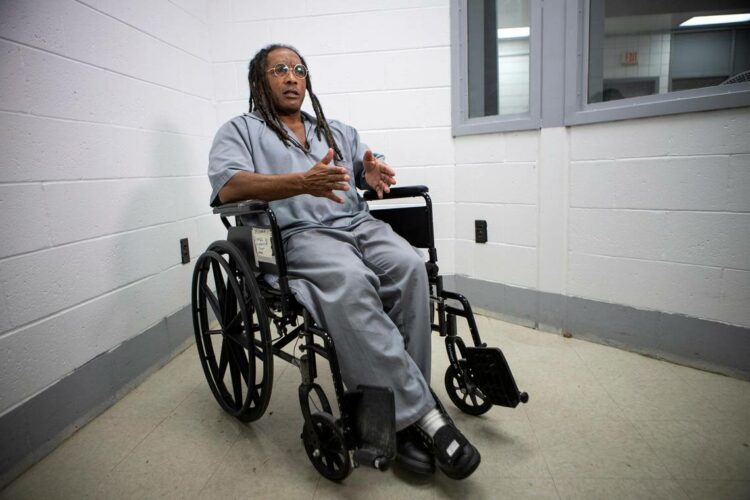Wrongful convictions and inadequate eyewitnesses are back in the spotlight after the case of a Missouri man incarcerated for 42 years was re-examined. Kevin Strickland has been in prison since his 1978 conviction for triple murder. Now, Jackson County Prosecutor Jean Peters Baker has taken a stand, reported People.
“All those who have reviewed the evidence in recent months agree — Kevin Strickland deserves to be exonerated,” Baker said. “This is a profound error we must correct now.”
Strickland was convicted based on the testimony of one witness, Cynthia Douglas. She was the sole survivor in an attack on a Kansas City, Mo. home that left Sherri Black, John Walker and Larry Ingram dead. Douglas identified two men, Vincent Bell and Kim Adkins, shortly after the shooting. However, she could not identify the third shooter.
More troubling is that Douglas knew Strickland and only named him the next day at the suggestion of her sister’s boyfriend. Prosecutor Baker detailed this in a letter to the Midwest Innocence Project. Cynthia Douglas, who died in 2015, said that the police pressured her into identifying Strickland as the third shooter.
“Just pick Strickland out of the lineup, and we’ll be done, it will all go away, you can go on, and you don’t have to worry about these guys no more, “ she told KCTV.
Kevin Strickland, who was 18 at the time, had an alibi for his whereabouts at the time of the murders. There was no physical evidence at the scene tying him to the crime. Even the two other defendants who pleaded guilty made it known that Strickland was not the one who aided them in the murders. The police had no logical reason to charge him but the witness testimony.
Douglas later recanted and was, in fact, the one who contacted the Missouri Innocence Project in 2009.
Eyewitness testimony has increasingly come on the radar for the problems it has caused. Strickland is one of a mountain of defendants who either lost years of their life or were put to death on the word of one or more eyewitnesses.
In short, witnesses make mistakes. Mistakes lead to wrongful convictions. However, witness testimony is still the leading method that the criminal justice system uses to build cases against defendants, according to the Innocence Project.
Thus far, 25 states have enacted eyewitness reform to counteract the risk of wrongful convictions. Missouri is not one of those states.
On Monday, the Innocence Project filed a motion for the Missouri Supreme Court to release and exonerate Strickland, who was convicted after a second trial due to the first trial resulting in a hung jury. On appeal, Strickland had no legal representation, Jean Peters Baker said.
The Missouri Supreme Court has given no timetable as to when Strickland’s case may be heard.















